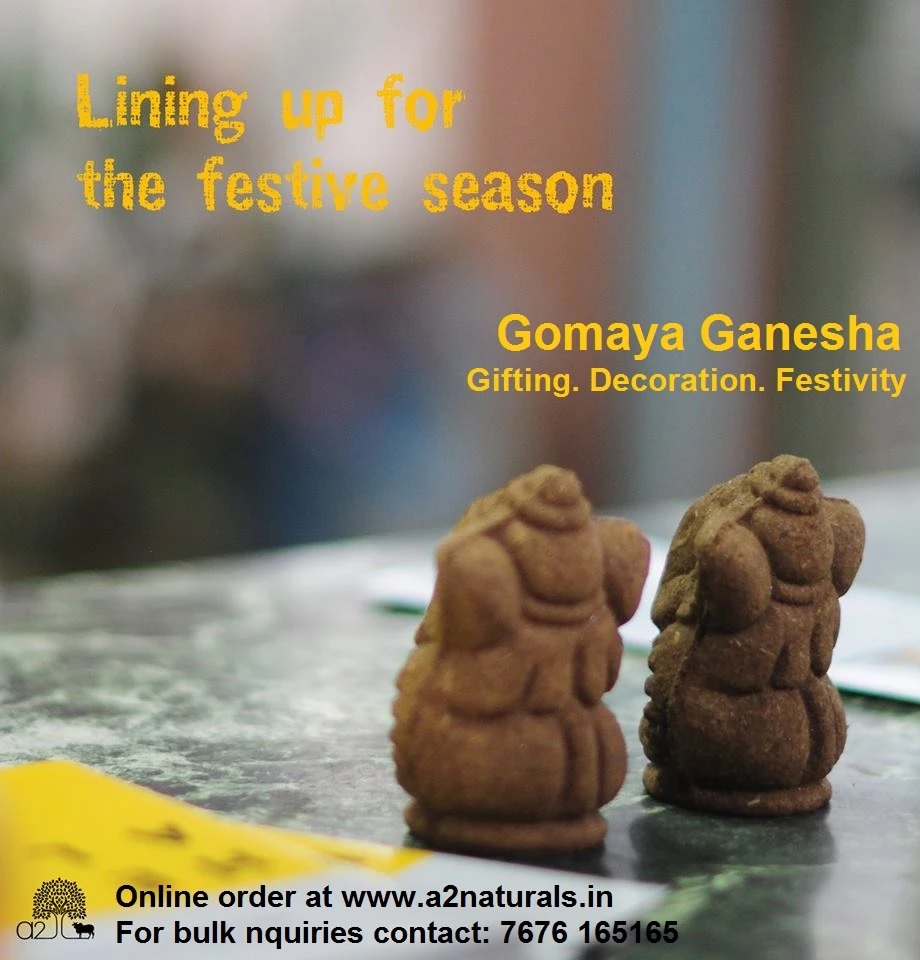Goddess Lakshmi is the talk of the nation this season, as people get into the festive mood with upcoming VaramahaLakshmi and Deepawali.
She in all her grandeur sits over lotus petals – which are the cleanest. Cleaning homes and work places are a norm to invite the Goddess of prosperity home. The recent advertisement of Swatch Bharat also encourages people to keep their surroundings clean.
The story goes that when all the Gods had occupied a space in the Desi Cow ‘Mother’ – their was no space for Lakshmi left. She took space in the cow dung and hence the idiom – ‘Gomaya Vasathe Lakshmi’ – which means the Lakshmi resides in Cow Dung.
Is the association of Lakshmi with lotus and cow dung together not an oxymoron?
Absolutely not!
A study had been done to evaluate antibacterial and anti-fungal properties of cow dung extract against Candida, E. coli, Pseudomonas and Staphylococcus aureus and found it highly effective against these microbes. The study revealed that cow dung extract possess antimicrobial properties, which can be used to fight against certain pathogenic diseases and other ailments.
Composting is an important and dynamic process in nature for recycling, which will occur quickly or slowly depending on the process used and skill with which it is executed. A paper published in Pakistan Journal of Nutrition proves that cow dung is great starter and booster in the composting process. The cow dung facilitated the early maturity of the compost and also contributed to the nutritional content of the composts. Department of Nuclear and Radiochemistry, Mumbai university found a eco-friendly dry cow dung powder based waste water treatment. Cleaning up has often been associated with cow dung for a reason and that is what makes it the Goddesses favorite

Even till today, the Lakshmi pooja is not complete without cleaning the place with cow dung. In rural areas, people apply cow-dung on outer walls of their homes and let them dry. Villagers use these dry cow dung cakes as fuel. Cow-dung is also used as raw material for bio-gas plant. Small insects like scorpions, centipedes etc don’t come near to the places which are coated with the paste of cow dung. Burning cow dung acts as a natural mosquito repellent. The floor which is coated with cow dung remains warm in winters and cold in summers.
Cow dung Ganesha are a rave this season not just for being ‘eco-friendly’ but being actually supportive for the ecology. Swachh Bharat is not about putting garbage in the dustbin, but making sure we segregate, compost and recycle to minimize environmental impact.

